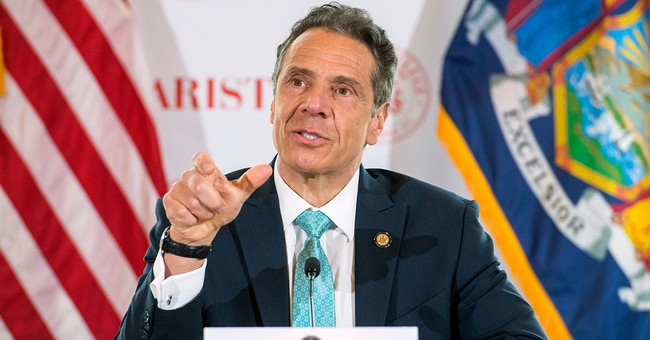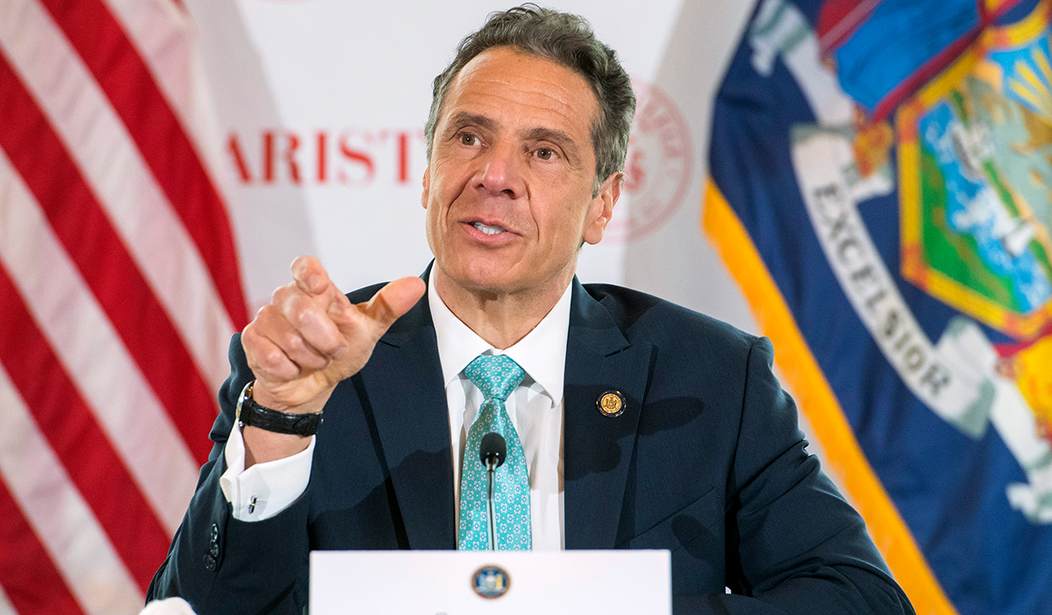
There’s a famous dictum from the world of medicine, “First, do no harm,” which has applications that reach far outside it. In a blog for the Harvard Medical School website, for example, Robert H. Shmerling, MD wrote:
“Ultimately, it is also a reminder that doctors should neither overestimate their capacity to heal, nor underestimate their capacity to cause harm.”
The same guiding principle can apply to government, as well. Too often, our nation’s leaders overestimate the capacity for government to cure our ills. And in a shocking display across the country in recent months, they’ve shown an inability to comprehend their capacity to cause harm — as seen in Democratic New York Governor Andrew Cuomo’s handling of nursing homes during the Wuhan coronavirus pandemic.
As my RedState colleague Lenny McAllister, co-host of the new “Red + Black ” podcast, wrote in a piece Sunday, one of the only things Big Government knows how to do is point fingers at anyone but itself.
But, you might counter: that’s fine and dandy when you’re talking to a conservative audience, but what about those in the middle of the political road map?
I think it’s worth listening to former Republican congressman Thaddeus McCotter for an answer, in his recent piece at American Greatness titled “Malcontents in the Middle?”
He wrote, in part:
“Independent voters, even those who lean one way or the other at any given time, are not ideological. They are practical. Their primary concern is which candidate, party, and policies will make things better or, alternately, do the least harm?
While political circumstances temporarily can rankle the ranks of independents, by and large there are no malcontents in the American middle. They love America and want the best for their families, communities, country, and the world.
[…]
The fear among the Democratic power brokers is that their party’s moderate mask is slipping too low and endangering their electoral objectives, such as retaining their House majority; gaining a Senate majority; retaking the presidency; and securing a host of state and local offices. While the apparently few in number centrist voters and their justified concern for their lives, liberty, and property in Portland and Seattle can be dismissed by left-wing elected officials during these riots, the tens of millions of Americans in the middle cannot be so easily dismissed, endangered, and abandoned by the Democratic Party.”
Even so, we can’t make the mistake, like in the 2012 presidential campaign, of just depending on voters being turned off by progressive policies — because we all know that they have ways to hide the medicine they prescribe – like a heartworm pill you’d give your dog – inside a yummy scoop of peanut butter. And as many, other elections have borne out, most people don’t go to the polls to vote against someone; they want to vote for someone they feel has their best interests at heart. Conservatism has that message ready-made in its soul.
One area people are talking about now, where a light touch and more conservative solutions would make sense to people who lean on their common sense, is the Big Tech issue involving social media platforms like Google, Twitter, Facebook, and YouTube.
Arizona Today, a state-based newspaper, reported last week on House GOP efforts to “rein in” those companies’ cutting out voices from the right side of the aisle — in a way that does the least harm:
Arizona Congressman Paul Gosar, along with several other U.S. Representatives, introduced H.R. 7808 Stop the Censorship Act of 2020 today. According to the press release, “Section 230 of the Communications Decency Act (Section 230) affords Big Tech immunity from liability for third-party content. Section 230’s “Good Samaritan” provision provides immunity for the removal of users and content, and has been abused by Big Tech to censor competition and lawful speech.”
The legislation, which was initially introduced in July of 2019, revokes immunity for the removal of competition and lawful speech. It also helps users protect themselves from objectionable material. The Justice Department recently recommended these reforms.
Part of the recommendation is that Big Tech must offer content filters for users instead of deleting material and free speech that they deem unacceptable. That means the control is in the hands of the user, not the Big Tech companies.
In the piece, Rep. Gosar was quoted as saying, in part:
“The broad and undue immunity for content and user removal granted by Section 230 must be reined in by Congress. We cannot continue to subsidize, deputize, or blackmail Silicon Valley to decide what is or isn’t an allowable conversation. Stop the Censorship Act of 2020 empowers users and limits Big Tech to the same rights and liabilities as everyone else.”
In other words, instead of a behemoth corporation deciding — more like a publisher than a social media platform — what thoughts can be expressed or shared, people would be empowered to choose which content they want to consume. What could be more conservative than that solution?
These and other solutions should be part of the winning message to moderates and all voters, which is simply: We want to live and work and build our American dream without massive government overreach in our lives — and you can help accomplish that by joining us. I can’t see how a message like that, if properly communicated, fails.













